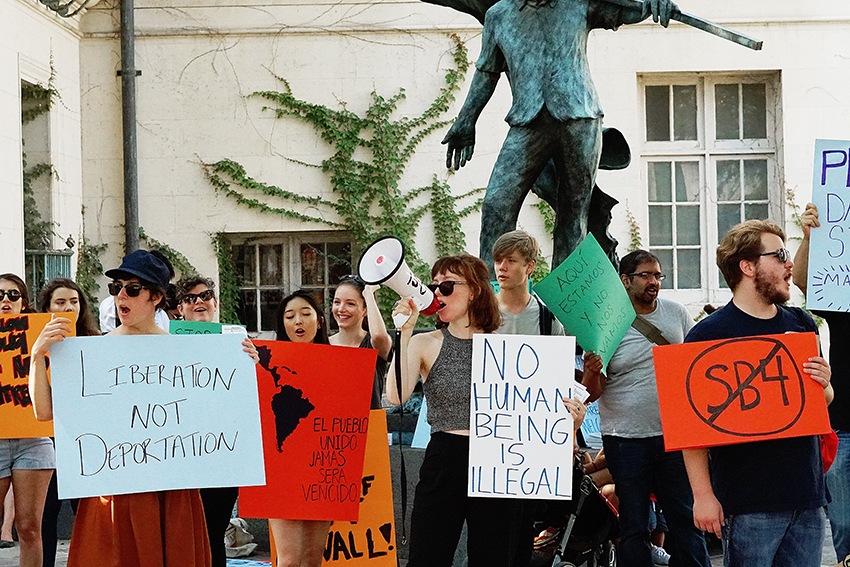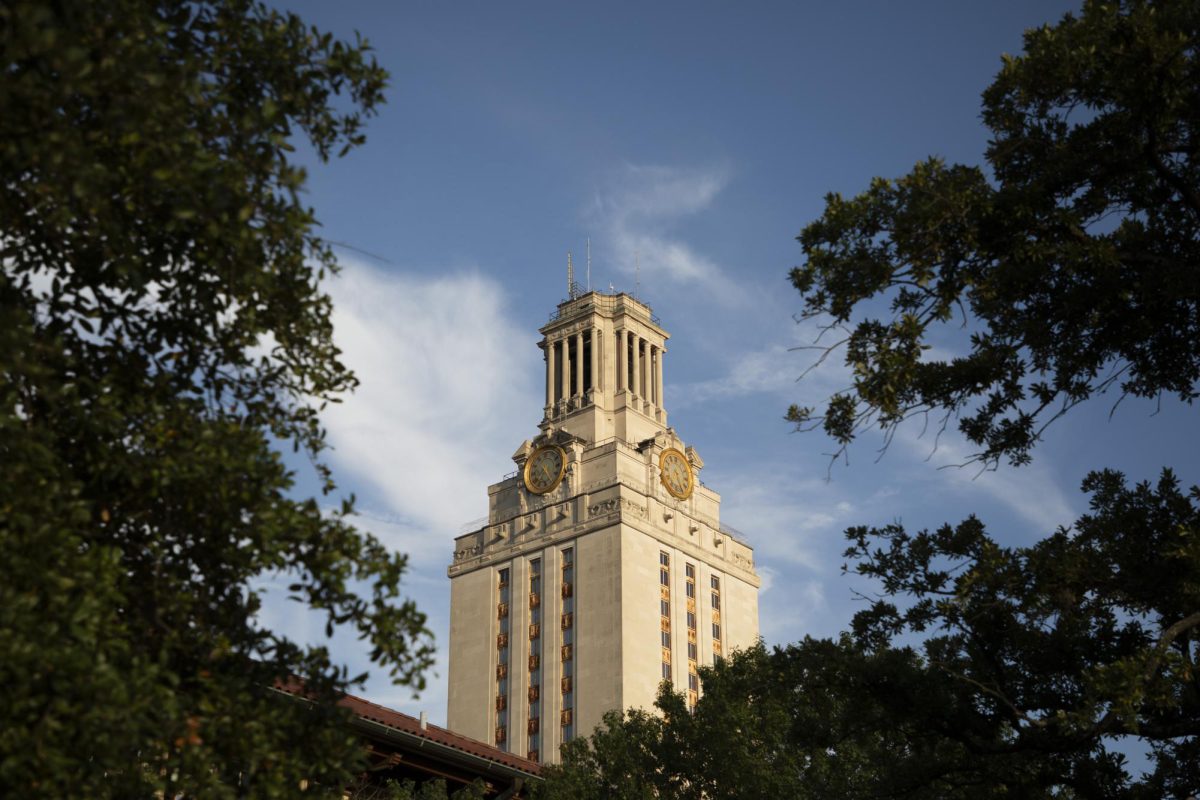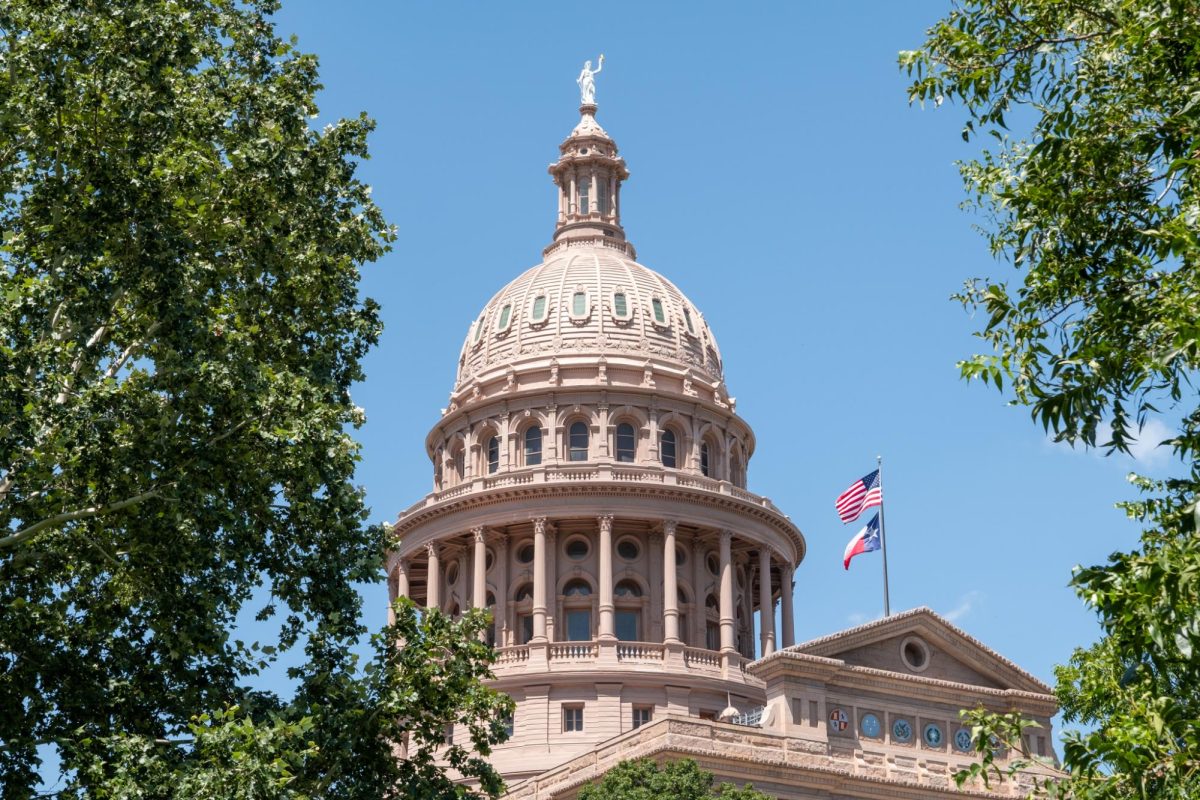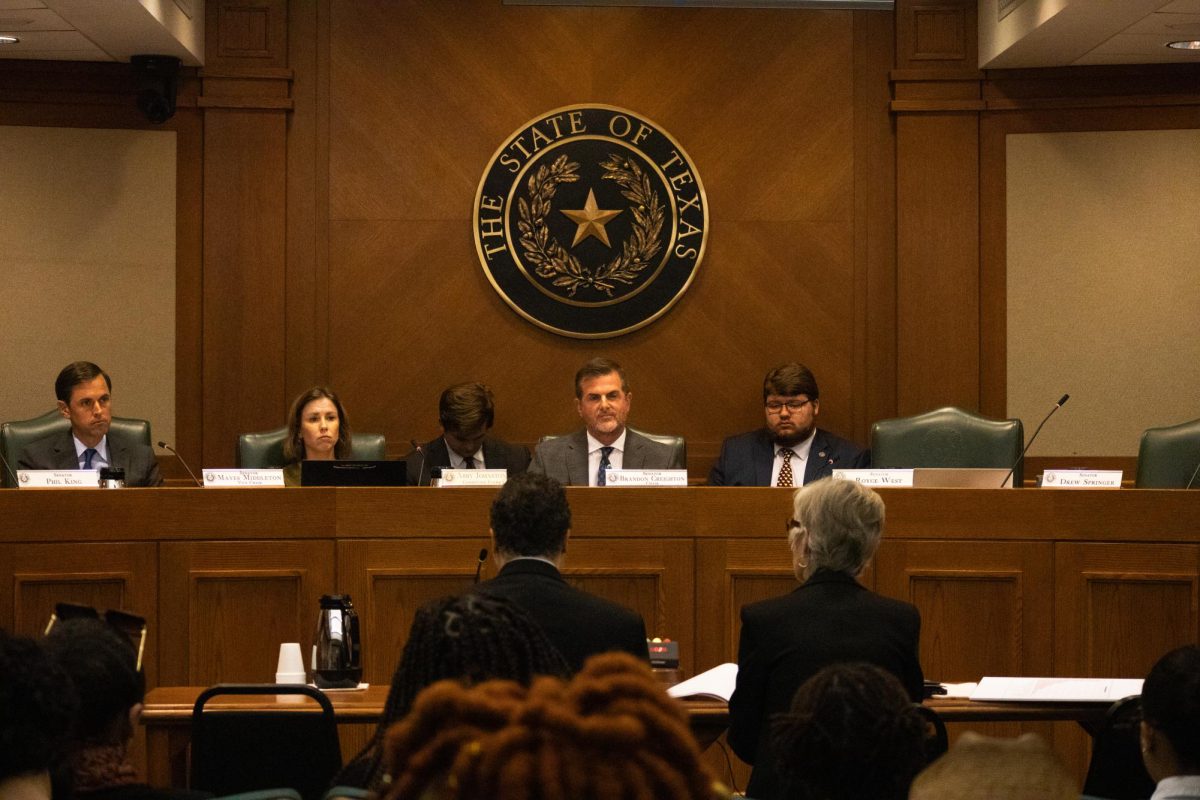The U.S. 5th Circuit Court of Appeals announced Thursday it will hear arguments Sept. 22 on Senate Bill 4 following State Attorney General Ken Paxton’s attempt to stay the temporary block of the law.
After SB 4, the “sanctuary cities” law was signed by the governor in May, a legion of counties and cities, including Austin, began filing lawsuits against the state to have the ban on sanctuary cities declared unconstitutional. Federal judge Orlando Garcia in San Antonio issued a temporary injunction on Aug. 30 to temporarily block the Sept. 1 implementation of SB 4. The plaintiffs of the case requested the injunction to maintain the status quo, arguing that the law could cause irreparable damage if enforced.
“There is overwhelming evidence by local officials, including local law enforcement, that SB 4 will erode public trust and make many communities and neighborhoods less safe,” the U.S. District Court for the Western District of Texas said in the injunction.
In response, Paxton asked the U.S. 5th Circuit Court of Appeals to keep the decision because the court deemed even voluntary compliance of Immigrations and Customs Enforcement detainer requests unlawful. He also called the court’s conclusion that the state violated the Fourth Amendment by complying with these requests “fundamentally flawed” because local officials have cooperated with federal officials in enforcing immigration laws for decades.
“The district court’s order should be immediately stayed pending appeal, as this injunction has far reaching public safety consequences,” Paxton said in his motion to stay the injunction. “Senate Bill 4 is wholly valid, and the state has every right to prohibit its own localities from having sanctuary city policies.”
Immigration attorney Kate Lincoln-Goldfinch, UT Immigration Clinic alumna, said she spent the summer preparing for the implementation of SB 4. Lincoln-Goldfinch said much of the Hispanic community in Austin doesn’t have a deep understanding of what the law does, and most of them just know that it’s a “big scary law” that could negatively affect them.
“Lots of people who are in legal status or on their way to legal status are just terrified of police officers now, which is not good for community safety,” Lincoln-Goldfinch said. “(Law enforcement’s) job is to maintain safety and have a good relationship with the entire community, including the immigrant community.”
Lincoln-Goldfinch said the injunction was a major step forward, but until the law is thrown out completely her clients won’t rest easy. Despite this, she said she believes the law will side with them in the case.
Throughout the legislative session, undocumented student Eveling Crisostomo said she was frightened by the law and kept hoping it wouldn’t get passed. Now, she said her family is preparing for the potential repercussions of SB 4 surviving the courts. Recently, her father suggested not driving anymore to eliminate the risk of traffic stops.
“What if a cop stops you now?” social work senior Crisostomo said. “It’s not just a traffic ticket. It’s not just going to jail. It’s literally a life-changing moment if it ever were to happen, being deported to a place you have not been to in years.”
Crisostomo said she’s doing her best to stay optimistic because the case is still weeks away from being decided.
“We have to hope that we’re not going to get deported,” Crisostomo said. “You build your whole life around hope, because if you don’t do that, then you destroy yourself.”


















